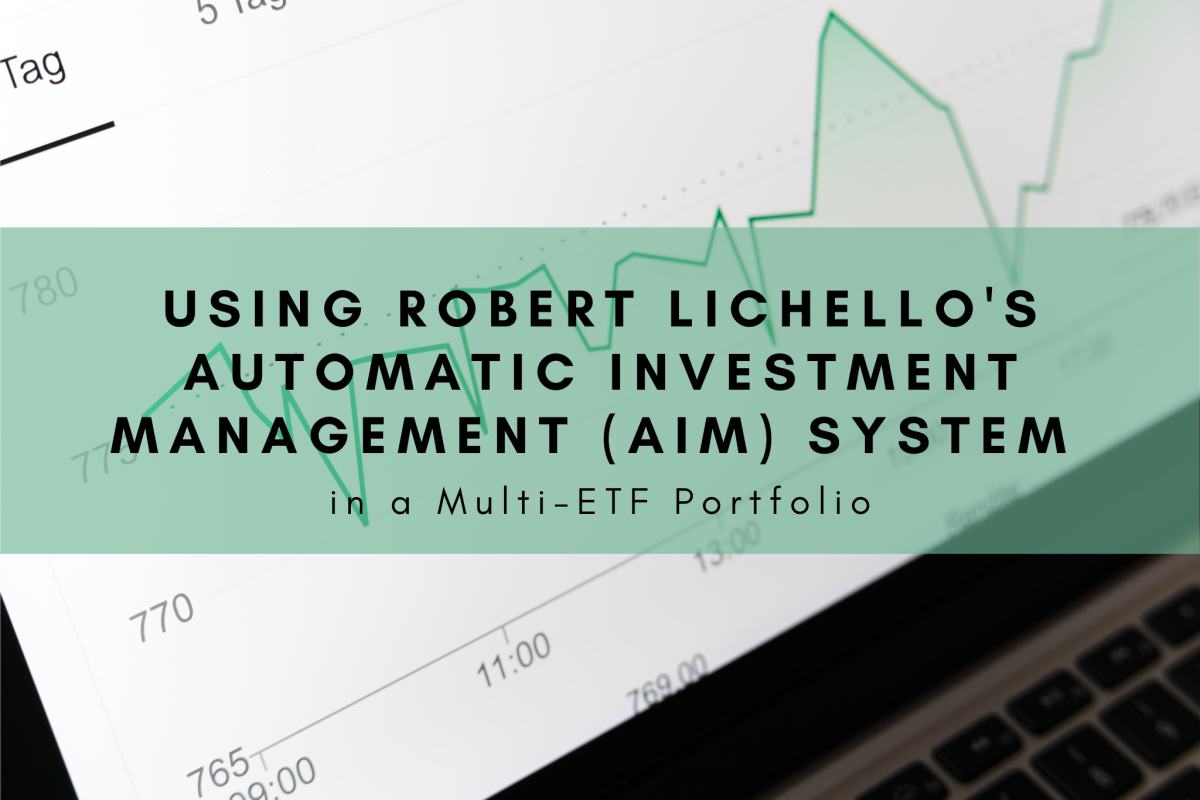Why ETFs Are Better Than Stocks

Philosophical Considerations
When answering any question, there is always a relevant philosophical underpinning for that question. In this article, I will argue that exchange traded funds (ETFs) are usually better investment choices than individual stocks. This does not mean that stocks are not a good investment, nor does it mean that ETFs are always a better choice than stocks.
When we ask, "What is the best investment choice?" This is a question that cannot be answered with complete specificity because choices are individual decisions. For example, one person who decides to buy individual stocks may not buy the same stocks that another person who chose to buy individual stocks would pick. One person who picks stocks may outperform the market whereas another person who picks stocks under performs the market.
Thus, the question of whether ETFs as investment choices are better than individual stocks is a general question, and so too, the answer to the question is general. The contention I will argue in this article is that, in general, ETFs are a better investment than stocks.
The Improbability of Outperforming the Market
Daniel Solin's book, The Smartest Investment Book You'll Ever Read, laid waste to the notion that investment experts can pick stocks that will beat the S & P 500 index. Less than 2% of mutual funds beat the market over a three year period, and that number goes below 1% beyond five years. These percentages are less than what one would expect if things were left to mere chance.1 Therefore, it seems that if any mutual fund outperforms the market at all, it is only a product of happenstance.
If investment experts cannot beat the market, why would we think that an average person would be able to pick the right stocks to outperform the market? Sure, anything is possible, but in general conclusions, we are not talking about possibility, we are talking about probability. If it is improbable that people who are certified to manage mutual funds can beat the market in a five year period, it is more so improbable that the average investor can beat the market by stock picking.
Complications with Valuation
If you watch half an hour of any business channel, you will see experts disagreeing on what companies are worth, and it is not uncommon for business people to disagree on a company's valuation when it goes bankrupt. How can we tell which expert is right? The valuation of stocks reeks of arbitrariness. If two experts disagree on the value of a stock, it means they have different ways to determine the stock's value.
There have been stocks that had no profit that whose stock prices have soared to hundreds of dollars. Tesla (TSLA) is one example of those companies. Tesla has been profitable at times, but it has gone back and forth on its profitability. To anyone who, for example, uses a multiple based on profit to value Tesla, Tesla would not be a good investment. If, however, an investor values on a visionary basis, they may think Tesla is a good investment. Therefore, the valuation we get from a company is based on completely arbitrary standards.
If the standards of valuing a company are arbitrary, how can we tell what a company is really worth? It seems that we cannot. We can pick our own methods of valuation, but not every investor will use the same method of valuation as we do.
Modern Obstacles to Stock Picking
If methods of valuation are arbitrary, then so too is a person's opinion on what a company is worth. This is why the stock market moves independent of valuation, and it is also why stock prices move independent of valuation.
If some stocks are overvalued and other stocks are undervalued, it follows that stock prices often do not coincide with the actual value of the company, if there is such a thing. Thus, it means, at the very least, stocks do not move in accordance to what our opinion of the stock's value is.
This conundrum has been complicated with the advent of index funds and exchange traded funds. These funds track indices, and these indices have different methods for selecting the stocks that the indices are comprised of. Some have an algorithm that seeks to track a number of "undervalued" stocks. Sometimes, they track the highest dividend-paying equities in another index without any regard for profitability or valuation. There are others that pick stocks on the basis of dividend growth or year-on-year profitability.
Many indices that ETFs track have no regard for valuation at all. This is yet another reason why stock prices move independent of valuation. Even if the true valuation of a stock could be reliably determined, it would be of little consequence because the market gives little regard to valuation. The money that ETFs invest in stocks is becoming a large part of the cash that has been invested into the stock market.
On top of the modern issue of passive investment funds using a multitude of ways to determine which stocks to buy, most investors in the market do not think about value. Many investors buy companies they like or they heard about a "hot stock" from a friend or on a news station.
Thus, we have no way of predicting which stock will go up or down nor do we know which stock will raise or cut its dividend next quarter. If it is impossible to know what these stocks will do, why would we limit our choice to individual stocks?
Increased Workload from the Diversification of Individual Stocks
The solution, of course, to the risk involved in picking one stock is to diversify rather than choosing to hold one stock. Warren Buffet, who is one of the few investors that has consistently outperform the S & P 500, at least, until recently, is against diversification insofar as most financial experts describe it.2 Warren Buffet, despite him not being for diversification in his own portfolio, has repeatedly suggested that people should invest in index funds and ETFs.3
Diversification, however, at least, effective diversification, will require more time of the investor. The investor, if he wishes to keep track of how the companies he has invested in are doing, must review quarterly earnings, listen to conference calls, and watch the news concerning each of the companies he is invested in. If it is unlikely that he will outperform an S & P 500 index fund, is it really worth the investor's time to be so involved with his investments? Keeping up with the investments is a lot to ask for considering that statistics show that less than 1% of funds managed by experts succeed in outperforming the market in a five-year period.
Balance sheets and income statements, as released by corporations, are often difficult to read, and it takes a lot of time for brokerages to release a more readable format of the statistics to their investors. This puts investors that may not know how to read the raw reports released by companies at a disadvantage because they do not have the immediate ability to make a decision based on a company's earnings report and balance sheet.
The Solution: Investing in ETFs
For most investors who manage their own portfolio, investing in ETFs is the best option. ETFs are usually cheaper than mutual funds, and there are many services that allow you to buy them commission free. They can also be more quickly liquidated than mutual funds.
Not all ETFs are diversified, but there are many ETFs that are. Warren Buffet correctly said, "Diversification is protection against ignorance. It makes little sense if you know what you are doing." In this article, it has been made abundantly clear that we have no way of knowing what the future holds for individual companies.
At the beginning of this article, I highlighted the notion that a general question also means the answer will be general. In general, ETFs that track indices that trend upwards will, over a long period of time, continue to go upwards.
Not only will these ETFs probably continue to trend upwards, but ETFs, properly selected, can provide additional protections that individual stocks will not provide. For example, if you are a dividend investor and you invest in a dividend growth ETF, if a stock fails to meet the criteria of the ETF, the ETF will sell that stock automatically, whereas an individual stock investor who wants to only be invested in companies that grow their dividends each year would have to not only keep track of his stocks' dividends, he would also have to sell them himself if a stock failed to meet his standard. All of this takes time, and the amount it would take increases with the number of individual stocks he holds. In contrast, the ETF investor would not have to dedicate any time to the situation because the ETF will automatically sell off stocks that fail to meet its standard.
The same goes with profitability. Ideally, we want to be invested in companies that are growing and are profitable. A lot of ETFs have an algorithm that pays attention to these metrics. If a company fails to grow its revenue or if it is not profitable, the ETF will automatically sell off the stock. The ETF investor would have to dedicate no time to such a situation, whereas a diversified individual stock investor who wanted to keep up these standards would have to review each company and sell off any unprofitable companies while also deciding what other stock he will buy, if he decides to buy any at all.
Thus, the three advantages ETFs can provide are both diversification in a market where no one knows what is going to happen and ease of investing so that the investor can dedicate the time he would be spending listening to conference calls, going over quarterly earnings, and making decisions on what stocks to buy and sell to his family, his friends, or other ways of making money that pays better for his time than stock picking. And last, but certainly not least, it is very likely that a good ETF will outperform any collection of individual stocks that you would pick.
Footnotes:
1. https://www.thesimpledollar.com/investing/stocks/even-the-experts-cant-beat-the-market-why-would-you/
2. https://www.forbes.com/sites/karlkaufman/2018/07/24/heres-why-warren-buffett-and-other-great-investors-dont-diversify/#61f191804795
3. http://www.actiontohappyhealthywealthy.com/why-warren-buffett-recommends-exchange-traded-funds-etfs/
This article is accurate and true to the best of the author’s knowledge. Content is for informational or entertainment purposes only and does not substitute for personal counsel or professional advice in business, financial, legal, or technical matters.
© 2020 Jason L Petersen








